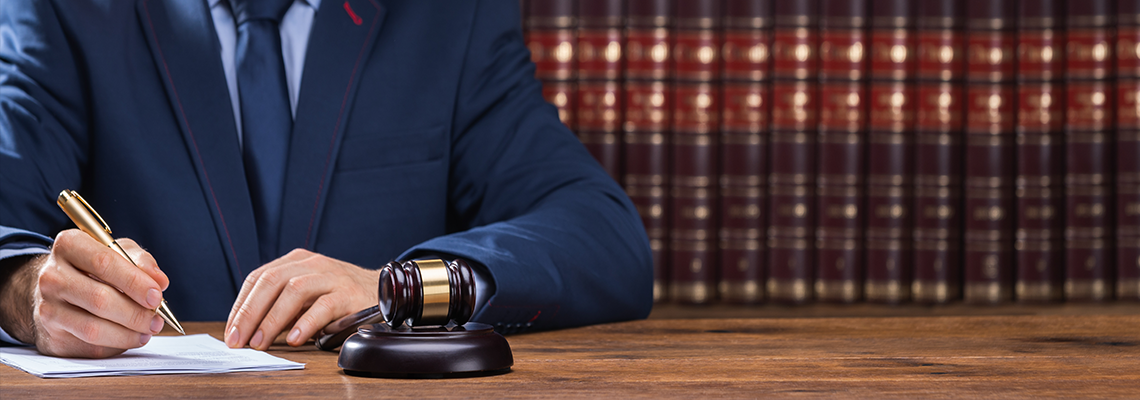
The Costly Consequences of
Ineffective Representation
Great defense attorneys aren’t cheap. However, when it comes to criminal defense, you usually get what you pay for.
The law establishes certain standards, such as the presumption of innocence until proven guilty and entitlement to legal representation regardless of the ability to pay. You can also choose to represent yourself in your own defense; a law degree and bar membership are not required.
Above all, you must bear in mind that the consequences of ineffective legal representation when you are charged with a crime can come with a higher price than you ever would have paid an experienced criminal defense attorney.
Gordon has built his career representing clients accused of crimes in Lynchburg and Blackstone, Virginia, as well as Amherst, Bedford, Campbell, Charlotte, Nottoway, and Prince Edward counties. He gives every ounce of his experience to every client and understands the investment they are making in their own future. Call E. Gordon Peters, Jr., Attorney at Law today to schedule an appointment.
What Is Ineffective Representation?
The hallmark of ineffective representation is the ignorance, unwillingness, inability, or prejudice of counsel to do everything that should be done to present a solid defense against your charges.
Typically, ineffective representation involves:
Failure to object to questions asked and evidence presented by the prosecution when they are objectionable under the law and courtroom procedure;
Failure to identify and produce witnesses who can testify in your defense or refute testimony or evidence presented by the prosecution;
Failure to investigate allegations and incidents thoroughly and independently;
Failure to have certain testing performed, such as DNA testing, and to produce expert witnesses; and,
Failure to cross-examine witnesses for the prosecution.
What Are the Potential Consequences
of Ineffective Representation?
The ultimate consequence of ineffective representation when facing criminal charges in Virginia is life in prison without the possibility of parole for a wrongly-accused defendant. Even defendants who bear some or all guilt are entitled to legal representation that results in the best outcome possible.
Wrongful accusations, extenuating circumstances never brought to light, not arguing self-defense, lack of DNA testing that could have exonerated the accused, not impeaching a witness committing perjury, not presenting an expert witness, not claiming diminished capacity, and other such issues on the table are inexcusable. Defendants go to prison when they should not have been convicted at all or face much longer sentences than they should. Fines and restitution may be higher, and community service, probation, and parole may be longer than they should be.
Simply put, without effective legal representation, lives are destroyed.
What Are the Pros and Cons of Private Attorneys vs. Public Defenders?
Private criminal defense attorneys and public defenders have all graduated from law school and passed the Virginia State Bar Exam. It is where they choose to practice law that makes a difference in the quality of representation you receive.
Public defenders bear extremely heavy client caseloads. Unlike private lawyers, they cannot be selective with whom they represent. Those enormous caseloads mean public defenders usually don’t have the same amount of time to prepare a defense and often lack the resources of a private law firm to present the best defense possible. The offices of public defenders were established to serve clients who cannot afford to pay a private attorney to represent them. However, these offices are severely underfunded and overutilized.
Moreover, you can retain a private defense attorney if you are merely being investigated or when a warrant is issued for your arrest. That means your lawyer can immediately intervene on your behalf by initiating an investigation, reviewing evidence, talking to the prosecuting attorney about reducing or dismissing charges, and mounting a defense. In most cases, public defenders are not assigned to a case until defendants are charged and arraigned. They begin representation in catch-up mode and are likely to never catch up.
What Should I Look for
in a Defense Attorney?
The most important thing you should look for when hiring a criminal defense lawyer is experience defending those charged with the same crimes you are accused of. An orthopedic surgeon and a heart surgeon are both surgeons, but you don’t want the former doing a bypass operation or the latter replacing your knee. The same is true with attorneys.
You should also ask the attorney how much of their practice is devoted to the criminal defense relevant to your case and although you can’t ask for specific information, how successful they have been defending other clients in similar situations.
You should be able to have faith in and place your trust in your defense lawyer. You are putting your life in their hands.
Experienced Advocacy You Can Trust
There are innocent people in prison. There are also guilty people serving much longer prison sentences than they should be serving. Your best opportunity at not becoming one of them is to hire a criminal defense attorney like Gordon. As you pay him a retainer to represent you, remember that you are making a very real investment in your future.
If you are facing criminal charges or have been charged, call E. Gordon Peters, Jr., Attorney at Law about providing stellar legal representation. It’s your life. Call now.